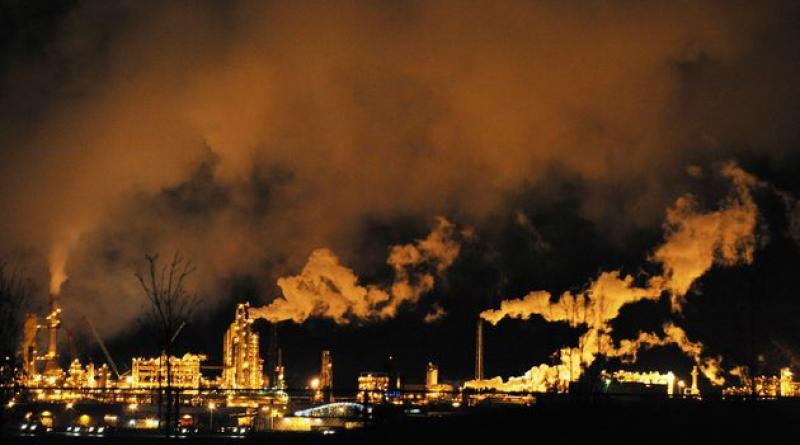Oilsands Face Deep Trouble As ‘Death Toll’ Rings For Gasoline.

Oil production costs will have to come way down to be competitive with renewables a decade from now, a new study says.
The age of gasoline could be over sooner than many people think, a recent report from one of the world’s largest banks predicts.
The report from French financial giant BNP Paribas estimates that the market price of oil will have to fall dramatically in the next decade or two, or the industry risks losing its entire ground transport customer base.
“The oil industry has never before in its history faced the kind of threat that renewable electricity in tandem with electric vehicles poses to its business model,” wrote Mark Lewis, global head of sustainability research at the bank’s asset management division.
He described his estimates as a “death toll for (gasoline).”
Lewis’ analysis found that within a decade or two, oil will have to fall in price to around US$10 to US$20 per barrel to be competitive as a transport fuel. For comparison: Brent crude, the global benchmark for oil prices, has been trading at around US$58 per barrel recently.
About 40 per cent of the oil produced in the world is consumed by ground transportation, and that huge part of the demand for oil could disappear if oil doesn’t fall in price, Lewis said in an interview with HuffPost Canada.
“If you can’t produce oil below $20 a barrel within 10 years, you’re going to have a big problem selling oil as a transportation fuel,” he said.
That could prove to be a serious problem for Canada’s oilsands, where the cost of producing a barrel of oil from a new project is estimated at around $40.
“This problem is particularly acute for the oilsands from a costs point of view,” Lewis said.
The cost of producing renewable energy has come down “massively” in recent years, Lewis said. In 2010, the average global cost of solar electricity was $400 per megawatt hour; today it’s $75.
Renewables a much better investment
His analysis found that already renewable energy is already much more efficient than fossil fuels. A one-dollar investment in solar power will yield six to seven times as much useful energy as a one-dollar investment in oil, over the course of the investment’s lifetime.
But oil still has a huge advantage today ― it is a massive industry with very well-developed infrastructure worldwide, Lewis explained. That means investing in oil will get the energy flowing much faster.
But that advantage will disappear over the next decade or two as the renewables industry develops, Lewis predicts.
"Very often people who have the most to lose when change is coming are the last to see it".
Mark Lewis, BNP Paribas
Because the energy used in renewables ― solar or wind, for example ― is practically free to extract once you’ve built the infrastructure, energy will get cheaper over time, Lewis predicts ― it will be a smaller part of the global economy, and will consume less of people’s income.
“Which would be a great thing for society,” he said, noting that ExxonMobil recently dropped out of the top 10 largest companies for the first time in its history.
Industry sees no threat
Building an oilsands mine is extremely expensive and it takes years to make your money back. For that reason, oilsands are long-term projects, and that means new projects under construction today could end up losing money.
“It means the oilsands are more exposed to future risk of being stranded assets,” he said.
But the oilsands industry doesn’t see it that way at all. The latest long-term forecast from the Canadian Association of Petroleum Producers (CAPP) predicts oil production in the oilsands will grow by 28 per cent by 2035. It sees a lack of pipelines as the major threat to the industry.
“Very often people who have the most to lose when change is coming are the last to see it,” Lewis said.
15 September 2019
HUFFPOST



